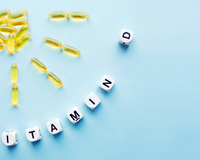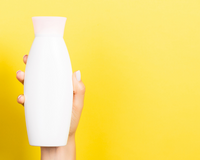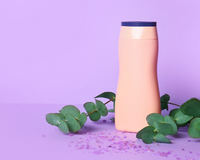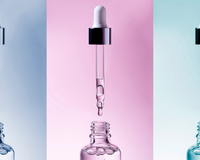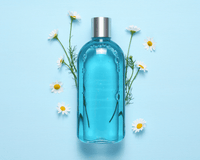Hair Treatment For Damaged Hair
You can tell when your hair is damaged when you look at it and touch it, too. Your hair might be dry and brittle to the touch, have visible split ends, and look dull and lifeless. There might also be extra frizz. The first thing you need to do hair treatment for damaged hair is to admit that you're going to have to do something. If some of your ends are splitting, or it takes a long time to dry your hair, your hair may be a little worn. However, if your brush or bathroom floor has more hair than your head, it's probably because chemicals have caused it to break down and fall out.
Take it easy. It's possible to help some of that hair damage get better and to keep it from breaking again. Get ready for regular haircuts, new hair care, and maybe even less shampoo. These changes will happen over the next few months, and we'll talk more about them later. In order to keep your hair healthy, you should make a few small changes now and then. Get shiny, healthy hair with these expert tips. Say goodbye to damage for ever.
Hair Treatment Products For Damaged Hair
You need to get your hair cut every few months to get rid of dry and split ends. Even if you've been growing it out for a long time, it's still important. Cut your nails and scrub your face, right? Most of the time, it's the same. Cutting off your hair's dead ends stops splits from going up your hair and cutting off even more length. Keep your hair cut every four to six weeks if you want to keep it the way you like it, or every six to eight weeks if you want to grow it out.
Pro tip: Hair that is well-hydrated is healthy hair, so this is a good thing to know. In order to get there, you'll need a great moisturizer for your hair. This will help repair damaged strands over time, and will also make your hair look shiny the next day. Because they contain hydrating botanical ingredients and oils, as well as keratin and amino acids that make hair stronger, hair masks and deep conditioners both nourishes and protects hair at the same time. Do this a few times a week when you wash your hair. Use the deep conditioning treatment instead of your conditioner.
If you have a brush for wet, fragile hair that needs to be detangled, you can brush your wet hair. Take the wide-toothed brush when you're not sure what to do. It won't snag on hair when it's at its weakest. It's also a good idea to use a leave-in product if you're brushing wet hair. This will help the brush move through without snagging or breaking the hair. Really, hair sunscreen is a thing.
Keep Chlorine Exposure Down
If you can, keep your hair out of the pool as much as possible, says Tengler. They are full of chlorine, which takes natural oils from your hair, leaving it dry and rough. The chlorine also makes your hair more brittle. If you swim a lot or spend a lot of time with your hair in the water, use products that can protect your hair from chlorine." Also, don't forget to put the hair masks on afterward!
Add Oils To Your Routine
When your hair is extra rough, like after a swim in the pool, use a little argan oil to make it softer again. Coconut oil can be used to make a leave-in conditioner that doesn't need to be rinsed off. Heated up a small amount, and put it on your hair from the middle to the ends. There are ceramides and essential fatty acids that can be found in store-bought creams.
Hair treatments that repair the bonds in your hair are what you should look for In the hair industry, bond building treatments are a favorite of professional stylists and colorists because they work on a molecular level to fix the bonds that have broken on the hair shaft. This helps the strands of hair stay strong and stable. Then? Your hair will look shinier, smoother, and softer, and your color will be more vivid.
Don't Wash Your Hair Every Day
It's time to get to know dry shampoo. There is only one person who knows how often their scalp gets dirty: them. Some people like to wash every other day, and some only wash once a week. If you can, don't wash every day if you can. Slowly cut out one wash a week. When you wash your hair too often, you can get rid of the important oils from your scalp before they have a chance to work their way down the hair shaft and nourish your whole lengths.
Freeze Your Styling Rules!
If you're seeing a lot of split ends and breakage when you're styling your hair, don't do tight hairstyles like ponytails and buns while you're sleeping or when your hair is still wet. The elastic part of your hair gets broken when you put your hair in a ponytail or bun when your hair is still wet. This is true for braids and buns that aren't taken care of.
Curling irons and flat irons are bad for your hair if you have it dyed. You should try to use them less. But if you have to use hot tools, don't just turn them up to the highest setting. This could be dangerous. Most hot tools have at least three settings for how hot they can get, and most have more. When you're heat styling, think of these temperatures as different types of hair. One is for fine, medium, and thick hair, and the other is for medium, fine, and thick hair. You should use the low or medium heat setting if your hair is fine or has been dyed. And don't forget the heat protector, which can help keep your clothes from getting even more damaged when you use an iron or a hair dryer to dry them off.


